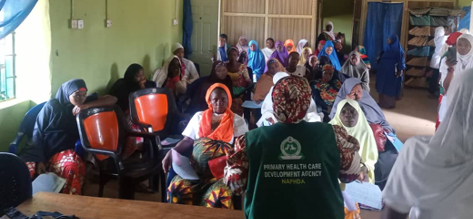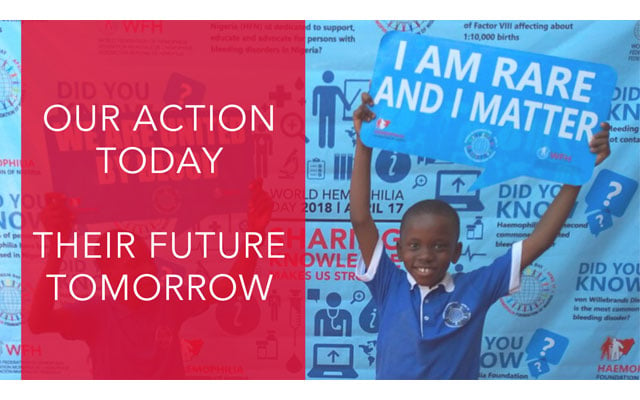One morning at 2 a.m., Megan Adediran, Founder and Executive Director of the Hemophilia Foundation of Nigeria (HFN), received a call from a mother asking for help: her son had fallen and would not stop bleeding. By 6 a.m. when Adediran called back to check-in, the young man had passed away.
These stories used to be far too common in Nigeria. Fortunately, the tide is turning, in large part because of the training and support that healthcare providers and patient advocates across the country have received from the World Federation of Hemophilia (WFH). In fact, ensuring that they are equipped and working together effectively to support people living with bleeding disorders is a pillar of the WFH’s healthcare development work. “We all know our strengths and weaknesses, and we know that we are here to complement one another for the good of patients, ” explained Adediran.
Partnerships established through the WFH Twinning Program have also had a significant impact in Nigeria. Hemophilia treatment centre (HTC) pairings have been instrumental to establishing multidisciplinary care teams across the country. The partnership between the Abuja National Hospital and the RUSH HTC in Chicago, U.S.A, helped raise awareness of bleeding disorders among healthcare professionals and provided training opportunities for laboratory technicians, nurses, and physicians. A second pairing, between the University of Nigeria Teaching Hospital (UNTH) in Enugu and the Children’s Hospital of Philadelphia (CHOP) HTC in Philadelphia, U.S.A, a few years later led to the identification of 30 people with bleeding disorders, the creation of educational resources for nurses, and the training of more than 25 healthcare workers.

Trained healthcare providers are vital to proper care, but Adediran also recognizes the importance of working closely with the medical community on advocacy efforts. “We have always emphasized that our organization is patient driven, treaters backed. Our healthcare providers are a very important pillar in our growth.” She credits this collaboration as one of the reasons the HFN—with funding and support from the WFH—was able to successfully convene partners from 36 states to a national Stakeholders Forum in 2017. The Federal Ministry of Health, the office of the Commissioner of Health, and WFH representatives gathered there to call for the appointment of desk officers (speakers) in various states. This important step meant that the HFN, and the families they represent, would have a place to turn within government to make their voices heard and to advocate for safe and effective treatment for their community.
Evidence-based data has been another key to the success of Nigeria’s advocacy efforts. “Before 2005, there was no central register for bleeding disorders in Nigeria. Policymakers did not understand the problem,” explained Theresa Nwagha, MD, Consultant Hematologist at the University of Nigeria. “Now every patient counts.” Data collection within HTCs in Nigeria was made possible thanks to the WFH World Bleeding Disorders Registry, which was launched in 2018.
“We can now easily describe the burden of bleeding disorders in our communities, support evidence-based advocacy initiatives and advance the understanding and care of our people with hemophilia,” said Titilope A. Adeyemo, MD, Department of Haematology & Blood Transfusion, College of Medicine, Lagos University Teaching Hospital.
The strong partnership between healthcare providers and the patient community, and the availability of clinical data, are central to the HFN’s ongoing efforts to secure prophylaxis for all children with hemophilia in Nigeria.
“Now, we are asking that the government purchase product to provide prophylaxis to children between zero- to five-years-old, while we continue treating six- to ten-year-olds with product donated from the WFH,” explained Adediran. Despite all the progress that has already been made, the HFN has no plans of slowing down—and the WFH will be there to support them every step of the way.
For nearly 60 years, the WFH has been working to create sustainable change for the global bleeding disorders community. We do this by empowering community leaders and healthcare providers with the knowledge and tools they need to improve the lives of people with bleeding disorders. Our actions today will shape their future tomorrow.
I have seen firsthand how the WFH has transformed the lives of people with bleeding disorders by empowering patient advocates and healthcare providers with the knowledge and tools they need to improve lives and work together to advocate for their communities. It’s what motivates me to be a part of the WFH as a volunteer board member and as a donor. Every dollar you contribute gets us one step closer to our vision of Treatment for All.
- Glenn Pierce, MD, PhD, WFH Vice President, Medical












